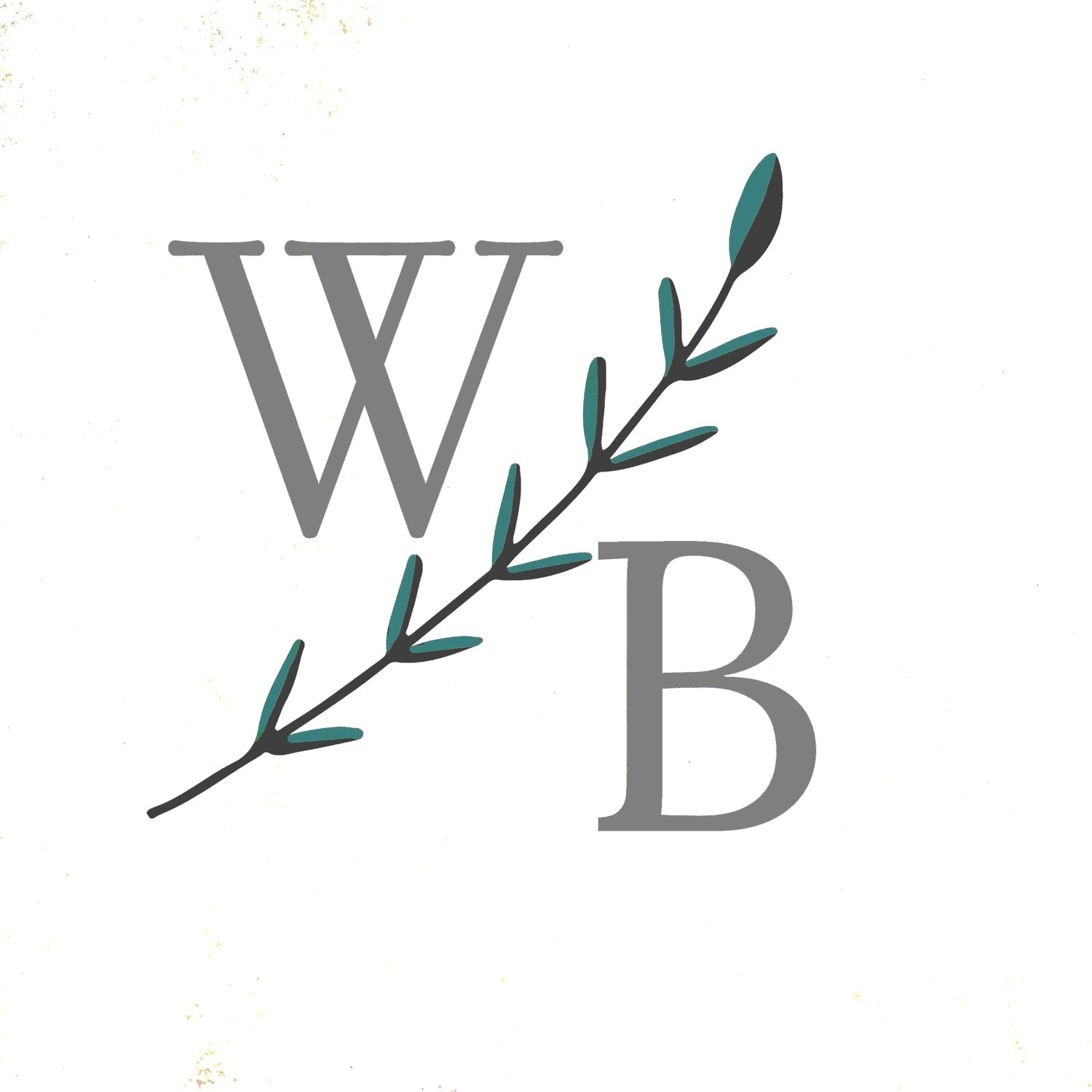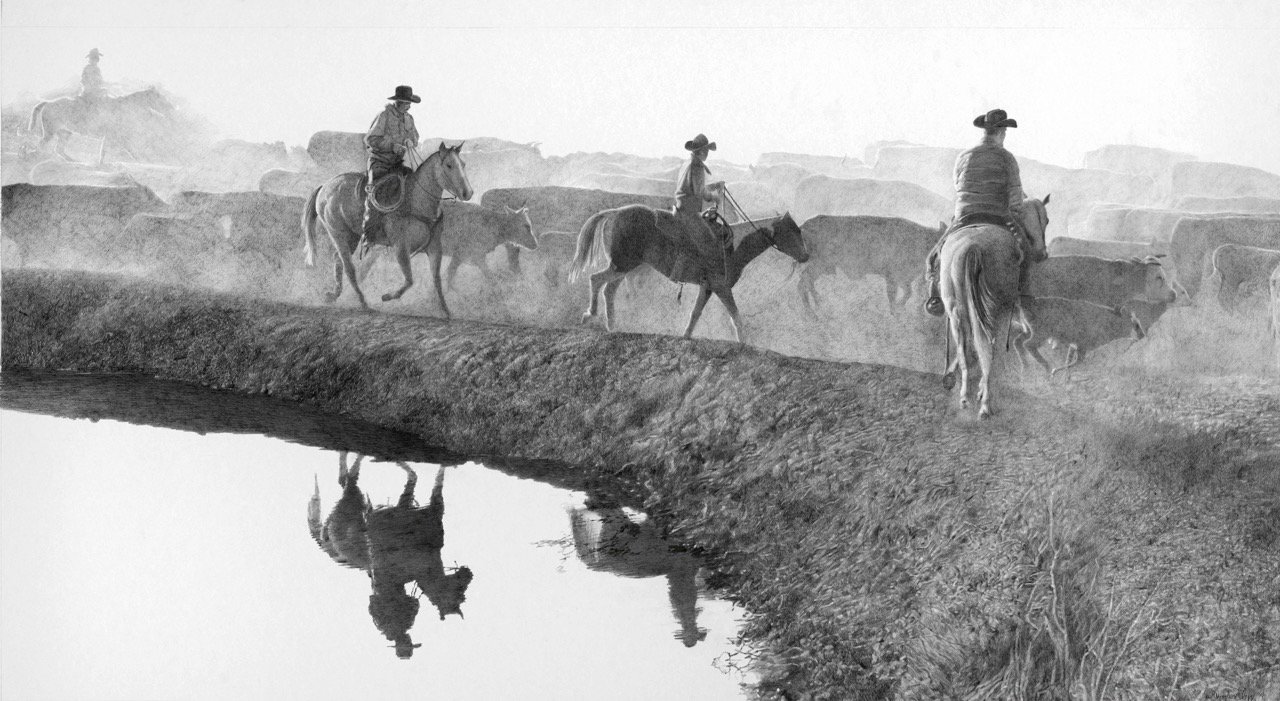WOODROW BLAGG

“(THE RETURN) really began in the eighties. I played with the composition (from the Waggoner Ranch) at times for almost thirty years. I loved working on every part of this image. A work of joy all the way through. After all these years, I feel… it may have come home.””
“BOTH AS aN ARTIST, AND AS A PERSON OF AMAZING EXPERIENCES, WOODROW BLAGG IS INTENSE, FOCUSED, UNCOMPROMISING AND INSATIABLY CURIOUS ABOUT ART, IDEAS AND PEOPLE”
The Artist’s Statement
The type of large-scale work Blagg is known for began at the Pennsylvania Fine Arts Academy in Philadelphia. He worked on a life-size portrait of a fellow student and found he really enjoyed that kind of presence. While working on another portrait project, he became good friends with John Schoonover, whose grandfather, Frank Schoonover, was a famous illustrator and a friend of N.C. Wyeth. Visiting Schoonover’s studio, he saw an extraordinary collection of wildlife, Native American artifacts, clothing, and relics, and he was permitted to borrow a taxidermied bald eagle from the turn of the nineteenth century. Blagg spent the next three months drawing the eagle in great detail and at life-size. “It was pretty intense. I remember I wanted to get every quill and every feather, so my pencils were like hypodermic needles. I would spend two or three weeks just sharpening and whittling pencils, and then I could do my drawing. I just enjoyed the sense of a larger scale.” Blagg was also influenced by the scale and composition of Rose Bonheur’s The Horse Fair, which he viewed on a trip to the Metropolitan Museum of Art in New York City.
“When I saw this I was flabbergasted… and now the picture still breathes— it still knocks me flat. It’s a very deliberate, choreographed composition of horses and an amazing accomplishment.”
However, on his first trip to the Waggoner Ranch near Vernon, Texas, Blagg’s approach to the scale of the outdoors truly developed. He went to the ranch to briefly visit his brother, Jim, who worked there as a cowboy. Blagg would end up returning to the ranch yearly and staying for up to three weeks at a time. The immensity of the landscape left a significant impression on the artist.
“It was a real connection with the land. The silence and all of the openness was very impressive. I would go back to the studio and start a four - or five-foot drawing, but that didn't work. I just kept adding pieces of paper on the end of what I'd been completing, and three weeks later, I had a rough sketch that was twenty-one feet long. I found that scale worked. It connected to the experience that I had. I really liked the way that looked”
Woodrow Blagg
November 19th, 1946 - April 1st, 2023
EQUINOX, 2009-2010. Mixed graphite on archival rag paper, 42” x 52” Kenneth Daniels, Pitchfork Ranch, Guthrie Texas.
“This horse was so exquisite — there was just something very unique about this horse— he and Kenneth Daniels—it was like two sprits became one”
ELECTRA, Texas, 2009-2010. Mixed graphite on archival rag paper, 36” x 37”. Waggoner Ranch, Vernon, Texas
“This was the first time I came to the Waggoner Ranch, In 1979 — it was the day after Wichita Falls and Vernon, Texas, were devastated by the tornado. There were five or six tornados just on the ranch before and all the trucks got bogged— they couldn’t get to the pens for branding so they branded out in the open field. These horses were tired and up against pens— there is something quiet and dignified about that”
It was a real connection with the land. The silence and all of the openness was very impressive. I would go back to the studio and start a four - or five-foot drawing, but that didn't work. I just kept adding pieces of paper on the end of what I'd been completing, and three weeks later, I had a rough sketch that was twenty-one feet long. I found that scale worked. It connected to the experience that I had. I really liked the way that looked.
— WOODROW BLAGG
ORIGINALS
EQUINOX
WRECKING BULL
BULLS EYE
MYSTIC RIDGE
ELECTRA
5 MEN IN THE SHADE
THE RESCUE
DESERT RAT
EDGE LIGHT
HIGH HORNS
THE VEIL
PAUL
TIGHT ROPE II
THE GATHERING
ACES OVER CLUBS
STEW IN THE DUST
DAVID
FURY OF THORNS
SCOTT GENTLING
CRESCENT LIGHT
THE WINDOW
SILVER ROUND
SILVER RED
THE LAMP
THE DOOR
SILVER WHITE
SILVER SUN
QIEN SABE II
BLUE POLES
BIG HEARTS OF FIRE
SILVERLIGHT
THROUGH THE MIST
BLACK JACK
SEA WALL
THE FAR WALL





































